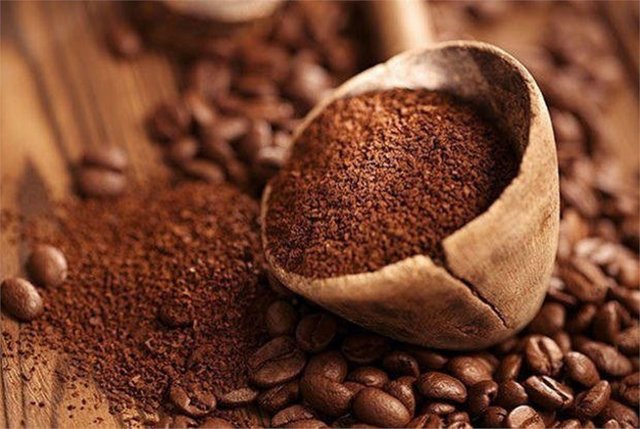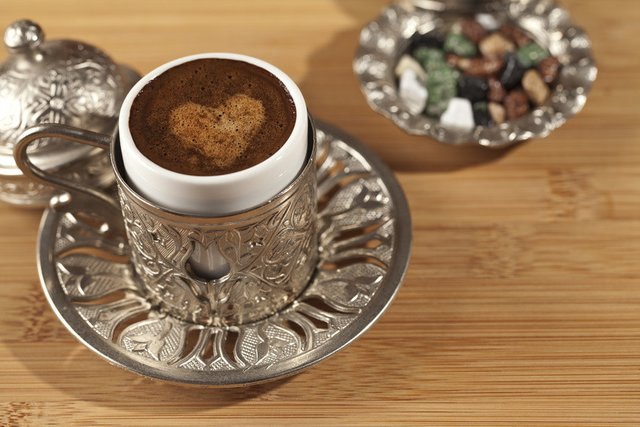
A blend of strong coffee, sugar and cardamom, Turkish coffee is more of a sweet treat than something similar to a regular cup of coffee. While there are certain health benefits from the coffee and cardamom, sugar is a major drawback when it comes to the nutritional benefits of the drink.

Calories, Fat and Other Basics
A serving of Turkish coffee contains about 46 calories. Though the drink doesn't contain any fat, it also doesn't supply any fiber or protein, two key nutrients needed for good health. The coffee doesn't supply an impressive amount of calcium or iron either.

The Sweet Stuff
A serving of Turkish coffee contains about 11.5 grams of sugar, which is equal to almost 3 teaspoons. That's half of the 6 teaspoons women should limit themselves to each day and one-third of the 9 teaspoons men should set as their daily upper limit, according to the American Heart Association. When you regularly eat more sugar than these limits, you can gain weight. Gaining too much weight can raise your risk of cardiovascular disease and Type 2 diabetes.
Keen on Coffee
Moderate amounts of coffee -- about 2 cups per day -- can help lower your risk of cancer. Coffee drinkers have a reduced risk of developing colon, breast and rectal cancers, according to Harvard Medical School. Coffee might also lower blood pressure and reduce the chances of developing Type 2 diabetes. Drinking coffee can cut the risk of Parkinson's disease in men, Harvard Medical School notes. The caffeine in coffee can boost alertness as well.
Cardamom Is Good, Too
In addition to lending Turkish coffee a distinct flavor, cardamom might also help aid in normal digestion, Michael T. Murray and Joseph E. Pizzorno note in their book, "The Encyclopedia of Healing Foods." Cardamom is a carminative, which means it can help relieve intestinal gas. The herb might give you a short burst of energy, too.
So, Should I Drink Turkish Coffee?
The occasional cup of Turkish coffee can have a place in your healthy eating plan. When you do have a cup, make accommodations elsewhere in your diet so you don't end up eating too much sugar. If you make your own Turkish coffee, go easy on the sugar. If you're sensitive to caffeine or if it's close to bedtime, make your Turkish coffee with decaffeinated coffee.
Türk kahvesini hiç bir kahveye değişmem.Güzel bir paylaşım ve teşekkürler.
Downvoting a post can decrease pending rewards and make it less visible. Common reasons:
Submit
Hi! I am a robot. I just upvoted you! I found similar content that readers might be interested in:
https://www.livestrong.com/article/454596-is-turkish-coffee-healthy/
Downvoting a post can decrease pending rewards and make it less visible. Common reasons:
Submit
@originalworks
Downvoting a post can decrease pending rewards and make it less visible. Common reasons:
Submit
The @OriginalWorks bot has upvoted and checked this post!
There is a high chance chance that there are similarities present here:
https://www.livestrong.com/article/454596-is-turkish-coffee-healthy/
https://www.healthyandfood.com/is-turkish-coffee-healthy/
This is an early BETA version. If you cited this source, then ignore this message! Reply if you feel this is an error.
Downvoting a post can decrease pending rewards and make it less visible. Common reasons:
Submit